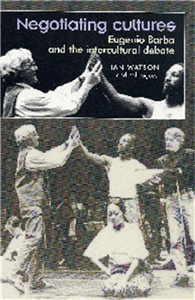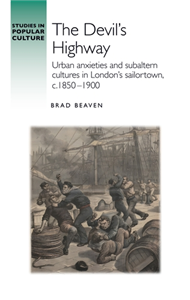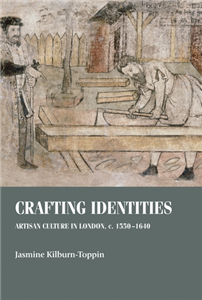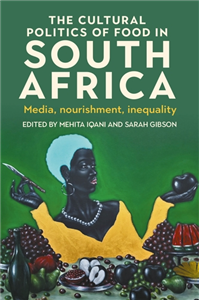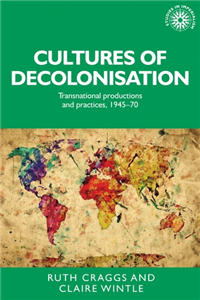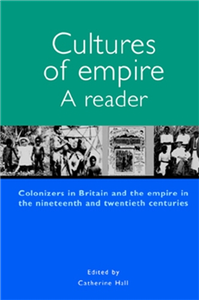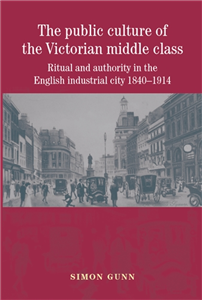Your Search Results
-
Promoted ContentHumanities & Social SciencesJune 2023
Worrier state
Risk, anxiety and moral panic in South Africa
by Nicky Falkof
Risk, anxiety and moral panic are endemic to contemporary societies and media forms. How do these phenomena manifest in a place like South Africa, which features heightened insecurity, deep inequality and accelerated social change? What happens when cultures of fear intersect with pervasive systems of gender, race and class? Worrier state investigates four case studies in which fear and anxiety appear in radically different ways: the far right myth of 'white genocide'; so-called 'Satanist' murders of young women; an urban legend about township crime; and social theories about safety and goodness in the suburbs. Falkof foregrounds the significance of emotion as a socio-political force, emphasising South Africa's imbrication within globalised conditions of anxiety and thus its fundamental and often-ignored hypermodernity. The book offers a bold and creative perspective on the social roles of fear and emotion in South Africa and thus on everyday life in this complex place.
-
Promoted ContentFebruary 2024
Why We Should Care if a Sack of RiceFalls Over in China
The food of the future
by Dr. Malte Rubach
It is time to counter the numerous utopias, myths and established narratives of the future of nutrition with a fact-based scenario. This book shows where the natural limits of what is currently technologically feasible lie and how the global diversity of food cultures will ensure the survival of humanity in the future. It exposes the great promises of meat substitutes from the laboratory as well as vegan renunciation scenarios, and shows a realistic path for the future of global nutrition along the lines of the United Nations’ 17 Sustainable Development Goals.
-
 Trusted Partner
Literature & Literary StudiesJune 2002
Trusted Partner
Literature & Literary StudiesJune 2002Negotiating cultures
Eugenio Barba and the intercultural debate
by Maria M. Delgado, Ian Watson, Maggie B. Gale, Peter Lichtenfels
Eugenio Barba is one of the world's leading theatre artists and theorists working across cultures. Examines three major strands of Barba's work; his research at the International School of Theatre Anthropology, his use of performance as a means of exchange, and his ongoing relationship with Latin America. The artists who write and are interviewed in the book provide an invaluable insight into Barba's work methods, his relationship with performers from different cultures, and the ramifications of his research in a variety of performance forms. Concludes with a dialogue between Barba and Ian Watson. ;
-
 Trusted Partner
Humanities & Social SciencesJune 2025
Trusted Partner
Humanities & Social SciencesJune 2025Private property and the fear of social chaos
by Aidan Beatty
-
 Trusted Partner
Humanities & Social SciencesJanuary 2025
Trusted Partner
Humanities & Social SciencesJanuary 2025The devil’s highway
Urban anxieties and subaltern cultures in London’s sailortown, c.1850-1900
by Brad Beaven
Between 1850 and 1900, Ratcliffe Highway was the pulse of maritime London. Sailors from every corner of the globe found solace, and sometimes trouble, in this bustling district. However, for social investigators, it was a place of fascination and fear as it harboured chaotic and dangerous 'exotic' communities. Sailortowns were transient, cosmopolitan and working class in character and provide us with an insight into class, race and gendered relations. They were contact zones of heightened interaction where multi-ethnic subaltern cultures met, sometimes negotiated and at other times clashed with one another. The book argues that despite these challenges sailortown was a distinctive and functional working-class community that was self-regulating and self-moderating. The book uncovers a robust sailortown community in which an urban-maritime culture shaped a sense of themselves and the traditions and conventions that governed subaltern behaviour in the district.
-
 Trusted Partner
Humanities & Social SciencesDecember 2021
Trusted Partner
Humanities & Social SciencesDecember 2021Crafting identities
Artisan culture in London, c. 1550–1640
by Jasmine Kilburn-Toppin, Christopher Breward, James Ryan
Crafting identities explores artisanal identity and culture in early modern London. It demonstrates that the social, intellectual and political status of London's crafts and craftsmen were embedded in particular material and spatial contexts. Through examination of a wide range of manuscript, visual and material culture sources, the book investigates for the first time how London's artisans physically shaped the built environment of the city and how the experience of negotiating urban spaces impacted directly on their distinctive individual and collective identities. Applying an innovative and interdisciplinary methodology to the examination of artisanal cultures, the book engages with the fields of social and cultural history and the histories of art, design and architecture. It will appeal to scholars of early modern social, cultural and urban history, as well as those interested in design and architectural history.
-
 Trusted Partner
Trusted Partner
-
 Trusted Partner
Humanities & Social SciencesMarch 2026
Trusted Partner
Humanities & Social SciencesMarch 2026The cultural politics of food in South Africa
Media, nourishment, inequality
by Mehita Iqani, Sarah Gibson
Food is both a material system of nourishment, necessary for human survival, and a communicative system that signifies multiple meanings across human cultures. This book explores the cultural politics of food in the South African context, bringing together a range of disciplinary perspectives on the links between media, nourishment, and inequality. The chapters all highlight the multiplicity of meanings that food has in South African society. These include historical perspectives on the impact of colonialism, migration and apartheid had on food and foodways in South Africa; sociological interventions on food and society; aesthetic practices in relation to food; and mediated food cultures in South Africa. Taken together, the book critically explores the multiple ways in which food is never just food, and always linked to complex and shifting modalities of meaning and knowledge in the South African context.
-
 Trusted Partner
Literature & Literary StudiesJanuary 2013
Trusted Partner
Literature & Literary StudiesJanuary 2013Ottonian Germany
The Chronicon of Thietmar of Merseburg
by David Warner
The Chronicon of Thietmar of Merseburg has long been recognised as one of the most important sources for the history of the tenth and early eleventh centuries, especially for the history of the Ottonian Empire. Thietmar's testimony also has special value because of his geographical location, in eastern Saxony, on the boundary between German and Slavic cultures. He is arguably the single most important witness to the early history of Poland, and his detailed descriptions of Slavic folklore are the earliest on record. This is a very important source in the medieval period, translated here in its entirety for the first time. It relates to an area of medieval studies generally dominated by German scholars, in which Anglo-phone scholars are beginning to make a substantial contribution.
-
 Trusted Partner
Humanities & Social SciencesMay 2024
Trusted Partner
Humanities & Social SciencesMay 2024Out of his mind
Masculinity and mental illness in Victorian Britain
by Amy Milne-Smith
Out of His Mind interrogates how Victorians made sense of the madman as both a social reality and a cultural representation. Even at the height of enthusiasm for the curative powers of nineteenth-century psychiatry, to be certified as a lunatic meant a loss of one's freedom and in many ways one's identify. Because men had the most power and authority in Victorian Britain, this also meant they had the most to lose. The madman was often a marginal figure, confined in private homes, hospitals, and asylums. Yet as a cultural phenomenon he loomed large, tapping into broader social anxieties about respectability, masculine self-control, and fears of degeneration. Using a wealth of case notes, press accounts, literature, medical and government reports, this text provides a rich window into public understandings and personal experiences of men's insanity.
-
 Trusted Partner
Humanities & Social SciencesSeptember 2018
Trusted Partner
Humanities & Social SciencesSeptember 2018Cultures of decolonisation
Transnational productions and practices, 1945–70
by Ruth Craggs, Andrew Thompson, Claire Wintle, John M. MacKenzie
Cultures of decolonisation combines studies of visual, literary and material cultures in order to explore the complexities of the 'end of empire' as a process. Where other accounts focus on high politics and constitutional reform, this volume reveals the diverse ways in which cultures contributed to wider political, economic and social change. The book demonstrates the transnational character of decolonisation, thereby illustrating the value of comparison - between different cultural forms and diverse places - in understanding the nature of this wide-reaching geopolitical change. Individual chapters focus on architecture, theatre, museums, heritage sites, fine art and interior design, alongside institutions such as artists' groups, language agencies and the Royal Mint, across Africa, Asia, the Caribbean and Europe.
-
 Trusted Partner
Humanities & Social SciencesJuly 2000
Trusted Partner
Humanities & Social SciencesJuly 2000Cultures of Empire
A reader
by Catherine Hall, Meg Davies
Collects together the best articles by key historians, literary critics, and anthropologists on the cultures of colonialism in the British Empire in the nineteenth and twentieth centuries.. A substantial introduction by the distinguished historian, Professor Catherine Hall, discusses new approaches to the history of empire and establishes a narrative frame through which to read the essays which follow.. The volume is clearly divided into three sections: theoretical, emphasising concepts and approaches; the colonisers 'at home', focusing on how empire was lived in Britain; and 'away' - the attempt to construct new cultures through which the colonisers defined themselves and others in varied colonial sites. A useful guide to recent scholarship on the culture of imperialism. ;
-
 Trusted Partner
2023
Trusted Partner
2023Drug Products in Nursing and Care Practice
Safe handling of medication
by Dr. Ulrich Räth and Friedhelm Kamann
The assessment of nursing and care needs and the organisation and quality assurance of nursing care are key tasks performed by nursing staff. This also includes administering medication, something which requires sound organisation, control, implementation and documentation. Nurses observe whether medication is taken consistently, has the desired effect, and whether undesirable side effects occur. The drug product as a „special commodity“ – whether in inpatient long-term care, in outpatient care, or in hospital – requires special knowledge concerning - correct storage, - the pharmacological effect, and - appropriate application. This book is geared towards the diseases and symptoms of people requiring nursing or care. All the important facts concerning the use of medicines are presented here in an understandable manner, focusing on the essentials. Numerous illustrations and practical tips provide the link to everyday nursing care. It is the ideal textbook and reference work for nursing and care assistants as well as nursing professionals.
-
 Trusted Partner
Literature & Literary StudiesJuly 2008
Trusted Partner
Literature & Literary StudiesJuly 2008States of suspense
The nuclear age, postmodernism and United States fiction and prose
by Daniel Cordle
When the atomic bomb exploded over Hiroshima on 6 August 1945, it precipitated a nuclear age that shaped the Cold War and post-Cold War periods. States of suspense is about the representation of this nuclear age in United States literature from 1945-2005. The profound psychological and cultural impact of living in anticipation of the Bomb is apparent not only in end-of-the-world fantasies, but also in mainstream and postmodern literature. This book traces the ways in which key motifs - the fragility of reality; the fear of closure; the inadequacies of language to represent the world - move between nuclear and postmodern cultures of the Cold War era. Taking three symbolically threatened environments - the home, the city, the planet - the book explores their recasting as 'nuclear places' in literature, and shows how these nuclear concerns resonate with those of other cultures. States of suspense will be of interest to students and scholars of American literature, and postmodern and technological culture. It will also be interest to those more generally intrigued by the cultural fallout of the nuclear age. ;
-
 Trusted Partner
The ArtsAugust 2007
Trusted Partner
The ArtsAugust 2007The public culture of the Victorian middle class
Ritual and authority in the English industrial city 1840–1914
by Simon Gunn
The public culture of the Victorian middle class looks at the creation of a distinctive 'high' culture in the industrial cities of Birmingham, Leeds and Manchester in the mid-nineteenth century and its incipient decline from the 1880s. The history of urban bourgeois culture has been relatively unexplored and under-theorised compared to popular culture. This volume therefore represents a significant contribution both to the study of middle-class cultural forms and to an understanding of the relationship between culture and power. In particular, it argues for the importance of ritualised modes of social behaviour in understanding the construction of authority in the nineteenth-century city. As well as many original arguments, the book provides a clear and useful overview of the public cultures of Victorian 'respectability'. The book will be of interest to scholars and students in the areas of social history, cultural history, urban history, cultural studies, urban studies and the sociology of culture. ;
-
 Trusted Partner
Trusted Partner
-
 Trusted Partner
Psychology
Trusted Partner
PsychologyDeveloping Anti-Racist Cultural Competence
by Rehman Abdulrehman
Learn to understand how you see others with this no-nonsense,practical guide• Teaches cultural humility• Provides practical guidance• Addresses internalized racismIn today’s society, anti-racist cultural competence is an essentialskill and not something meant only to be addressedby some. Issues tied to resolving racism and understandingand including diverse cultural points of view remain highlyconflictual – and the ability to deal with these issues effectivelyis often hindered by fear, anxiety, and a misunderstandingof what it means to be culturally competent withoutmaking people feel like outsiders. While many other modelsof cultural competence approach the issue as though lookinginto a fishbowl, this book views the issue as everyoneswimming in the water together, as part of a common ecosystemand community.
-
 Trusted Partner
Trusted Partner
-
 Trusted Partner
Science & MathematicsApril 2021
Trusted Partner
Science & MathematicsApril 2021Medicalising borders
Selection, containment and quarantine since 1800
by Sevasti Trubeta, Christian Promitzer, Paul Weindling, Hastings Donnan
The research of pandemics, epidemics, and pathogens like COVID-19 reaches far beyond the scope of biomedicine. It is not only an objective for the health, political and social sciences, but epidemics and pandemics are a matter of geography: foci and vectors of communicable diseases continue to test the efficacy of medical control at state borders. This volume illuminates these issues from various disciplinary viewpoints. It starts by exploring historical models of quarantine, spatial isolation and detention as precautionary means against the dissemination of disease and contagion by border crossers, migrants and refugees. Besides the patterns of prejudice with which these groups are confronted, the book also deals with various kinds of fear of contamination from outside of the nation state. The contributors address the implementation of medical techniques at state borders in the twentieth and early twenty-first centuries, as well as the presently practiced measures of medical and biometric screening of migrants and refugees. Uniquely, this volume shows that the current border security regimes of Western states exhibit a high share of medicalised techniques of power, which originate both in European modernity and in the medical and biological disciplines developed during the last quarter of the millennium. Drawing on the collective expertise of a network of international researchers, this interdisciplinary volume is essential reading for those wishing to understand the medicalisation of borders across the globe, from the early eighteenth century up to the present day.
-
 Trusted Partner
Literature & Literary StudiesMarch 2013
Trusted Partner
Literature & Literary StudiesMarch 2013The Intellectual and Cultural World of the Early Modern Inns of Court
by Edited by Jayne Archer, Elizabeth Goldring and Sarah Knight
This is a collection of essays on an important but overlooked aspect of early modern English life: the artistic and intellectual patronage of the Inns of Court and their influence on religion, politics, education, rhetoric, and culture from the late fifteenth through the early eighteenth centuries. This period witnessed the height of the Inns' status as educational institutions: emerging from fairly informal associations in the fourteenth century, the Inns of Court in the fifteenth and sixteenth centuries had developed sophisticated curricula for their students, leading to their description in the early seventeenth century as England's 'third university'. Some of the most influential politicians, writers, and divines - as well as lawyers - of Tudor and Stuart England passed through the Inns: men such as Edward Hall, Richard Hooker, John Webster, John Selden, Edward Coke, William Lambarde, Francis Bacon, and John Donne. This is the first interdisciplinary publication on the early modern Inns of Court, bringing together scholarship in history, art history, literature, and drama. The book is lavishly illustrated and provides a unique collection of visual sources for the architecture, art, and gardens of the early modern Inns ;







